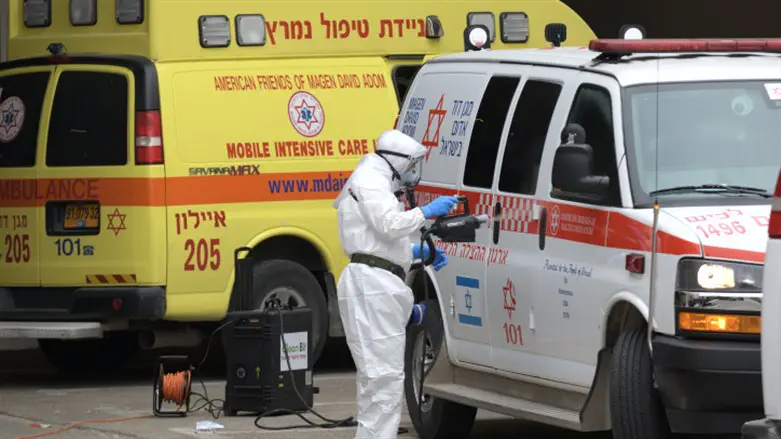
Even for veteran paramedics, few scenarios are as daunting as encountering medical emergencies they rarely see or executing new techniques in the field.
But for 23 senior paramedics with Magen David Adom (MDA), a leading Israeli EMS organization, these situations will seem more familiar thanks to a simulation center at Ben-Gurion University (BGU) that enabled them to train for three days earlier this month in an environment that closely replicates real-world conditions. Plans call for training more than 100 MDA paramedics in the next few months.
“This simulation center is designed to provide paramedics and EMTs with an environment where they can learn new diagnostic and therapeutic procedures and gain hands-on experience before having to apply them to a patient whose life is actually in danger,” said Dr. Refael Strugo, medical director of Magen David Adom.
“By simulating the conditions they’ll encounter in the field, the simulation center enables paramedics to become familiarized with what they’ll see when the emergency is real and lives potentially hang in the balance.”
The program, developed by MDA, was designed to enhance the advanced life support capabilities of its paramedics, the organization’s most highly trained emergency medical technicians. Of MDA’s roughly 29,000 EMTs, about 1,000 are certified as paramedics. They have a minimum of 1,500 hours of training, and frequently more than twice that if they graduate from Ben-Gurion University’s emergency medicine program, compared to about 200 hours of training for an EMT-B, a starting emergency medical technician.
The courses included the use of ultrasound as a tool for diagnosing cardiac arrest and establishing I.V. access, the equipment for which is being rolled out on MDA’s Mobile Intensive Care Unit ambulances, marking the first time ultrasound will be used in Israel in pre-hospital emergency care.
Other topics included were high-performance CPR, childbirth, trauma damage control resuscitation (which aims to resuscitate trauma patients while stemming blood loss), and delayed sequence intubation (a technique used to intubate patients more safely).
Magen David Adom’s use of the BGU simulation center is the result of an academic affiliation agreement MDA and Ben-Gurion University signed this past February.
“The ongoing collaboration between Magen David Adom and Ben-Gurion University in training paramedics and students is an important part of our program,” said Dr. Oren Wacht, academic director of the simulation center and a volunteer paramedic with MDA.
Israel became one of the first countries to have paramedics when Nancy Caroline, a trauma center physician at the University of Pittsburgh Medical Center and the co-creator of the paramedic profession, moved to Israel in 1977 and became medical director at Magen David Adom, establishing paramedics there too.
Since then, the organization has become world renowned for its expertise in multi-casualty response and the development of EMS technology and software.
“While MDA already enjoys a reputation as one of the world’s leading EMS organizations,” Dr. Strugo said, “this training program will enable us to continue to employ new, cutting-edge lifesaving techniques and continue to lead the way in innovations for emergency medical services in the field.”
